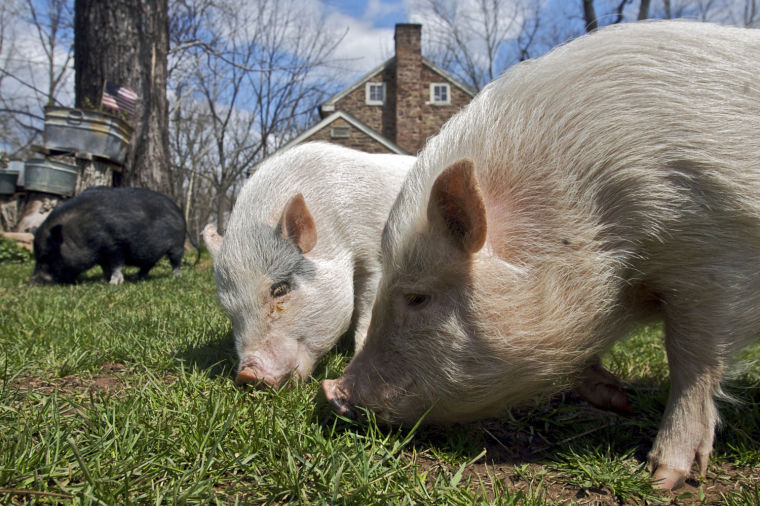Baked, not fried
February 7, 2014
What do spoiled Nesquik chocolate powder, old french fries, and excess cannabis have in common? As cheap byproducts, they have all been fed to livestock during the ever-constant struggle to come up with more economical diets.
Devising animal diets is not for the faint of heart and requires a degree of creativity that should have art majors everywhere green with envy. Using byproducts like potatoes and Nesquik powder waste as animal feedstuffs is an innovative and environmentally-friendly way of making animal agriculture more cost-effective.
However, one of these products is not like the others. Using cannabis in poultry, swine or cattle diets without knowing what types of residues are left in the meat as a result isn’t just ill-advised. It’s dangerous.
It might be the era of resourceful livestock feeding, but that does not excuse the use of dangerous additives in animal diets., especially if meat and milk from that animal are ultimately intended for human consumption.
In Washington state, both Jeremy Gross and William von Schneidau have fed marijuana refuse to their pigs, according to The Huffington Post. Cuts from ‘pot pigs’ are sold at von Schneidau’s butcher shop in Seattle’s Pike Place Market for up to $17 a pound. Those prices are not quite reminiscent of Kobe beef, which can garner prices of up to several hundred dollars per cut, but they are certainly at a premium.
Von Schneidau said the meat produced from pigs fed marijuana is “redder and more savory” than what he normally works with, according to NPR. Even though von Schneidau does not know how the cannabis impacts the animal, he maintains that the marijuana is nothing but a flavor infusion.
Consumers should not be comforted by the fact that von Schneidau’s veterinarian sees nothing wrong with feeding cannabis to pigs.
Scientists specializing in nutrition are not thrilled with the Seattle butcher’s ‘pot pig’ experiment. Tetrahydrocannabinol (THC), the compound responsible for the psychotropic effects of cannabis, is a fat-soluble compound. Thus, animals fed cannabis in high enough amounts will have THC residues in their milk and fat, according to the Australian Department of Agriculture, Fisheries and Forestry.
THC is concentrated in the leaves of marijuana plants, which von Schneidau uses in his cutting edge diet for swine, according to an article from NPR. This new fad feed would hardly be up to snuff once the Food and Drug Administration comes around. Drug residues in meat are a pretty big deal, cannabis notwithstanding.
Bacon is without a doubt one of the fattiest cuts of meat, which means that von Schneidau’s $17 per pound ‘pot pig’ bacon is packing a bit more than a savory flavor.
It’s fortunate for the consumers that research has already proven that feeding marijuana to pigs and other livestock animals is a bad idea. Unfortunately for von Schneidau, serving customers drug-residue tainted meat is nothing short of criminal, and if there is any justice in the world, he’ll serve the consequences.
The feeding of marijuana and hemp to livestock is heavily regulated due to the proven presence of THC residues, according to the Australian Department of Agriculture, Fisheries and Forestry and the European Food Safety Authority.
The most disturbing part of von Schneidau’s business venture is the decision to avoid full disclosure. It might be safe to assume that customers interested in pork from ‘pot pigs’ would be thrilled to find that the pot in the pig retains its base abilities, but some customers may be caught off guard.
Regardless, drug residues in meat are illegal, and von Schneidau should be shut down. Figuring out how to feed a ton of Nesquik chocolate powder to a group of cattle is innovation. Feeding cannabis to pigs is just ignorance.
–Corrine Harris is a senior animal science major from Edmonds. She can be contacted at 335-2290 or by [email protected]. The opinions expressed in this column are not necessarily those of the staff of The Daily Evergreen or those of Student Publications.






















